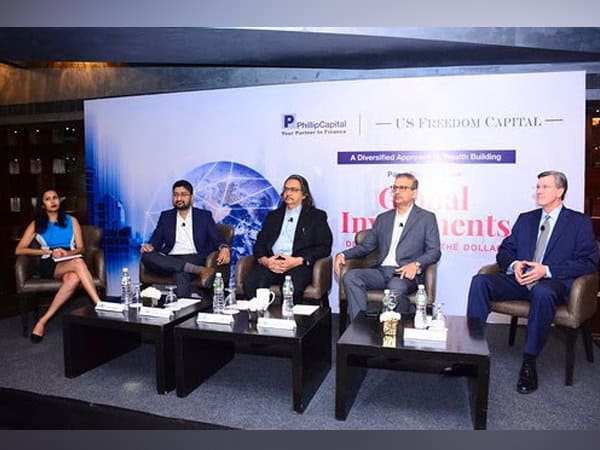New Delhi: US Freedom Capital, a global investment firm partnered with Phillip Capital, a financial house headquartered in Singapore, to host a panel discussion on global investments.
The discussion, hosted over breakfast, brought together prodigious thought leaders and investment professionals from both the United States and India to address the scope of portfolio diversification across various asset classes and geographies.
The conversation also addressed the necessity of diversification through USD in an Indian portfolio as well as the impacts of rupee volatility. Speakers on the panel included Gautam Mehra, Tax Expert and Partner, PwC India, Vineet Bhatnagar, Managing Director and Chief Executive Officer, Phillip Capital India-UAE, Stanley Bradshaw, Global Director, and Chief Executive Officer, US Freedom Capital and Mr. Arindam Sengupta, Deputy CIO US Freedom Capital.
The hour and a half long panel began with comments on a macroeconomic outlook of India and the US. Bhatnagar, Mehra, and Bradshaw all spoke about anticipated financial trends and how they may impact the markets in 2019.
The conversation quickly weaved into how these trends could trickle down and impact investment portfolios. This opened up the gateway for a larger discussion by the panelists on HNI portfolio construction management, both historically and today.
There was unanimity across all panelists that there is a serious urgency for HNIs to consider divesting away from an over-allocation to equities. According to Mr. Bhatnagar, the average HNI portfolio is compromised heavily of ETFs and mutual funds. But, despite a stellar performance, he noted, equities are still a highly volatile asset class exposing the investor to risk, especially during market corrections. With diversification into non-traditional assets, such as debt and fixed income, the gains accrued from equities have a stronger chance of being protected.
The need to diversify was further strengthened by Mr. Sengupta, who argued that investments made into foreign currencies reduce the risk profile of an investor. Historically, the dollar has been an uncontested currency of strength.
He articulated that as Indians embark on a journey for wealth creation, that the notion of capital preservation should not die and that “the dollar historically has been a great place to preserve value.” Mr. Mehra further made a case for the dollar by stating that Indians, today, have been spending a lot in foreign exchange for travel, leisure, acquisitions, real estate, and even higher education. Having a foreign exchange pool outside of India could benefit these expenditures and prevent the possibility of unforeseen losses from rupee depreciation.
Bradshaw made a comparative case for diversification by explaining that in the U.S., most individuals have integrated non-traditional asset classes to hedge: “One does not necessarily need to be a sophisticated investor to understand that a basket of diverse investments enhances portfolio protection.” He went on to add, “In the U.S., investors have been victims of volatile markets and have learned the importance of ‘not keeping all your eggs in one basket’.” In the long run, this will help an investor generate stronger, stable returns as opposed to temporary short-term gains.
[source_without_link]ANI[/source_without_link]

